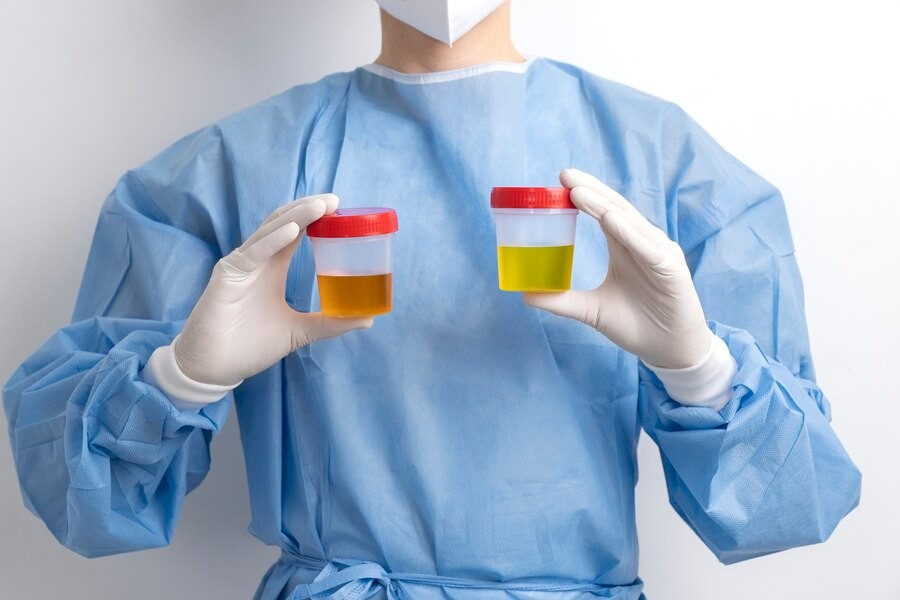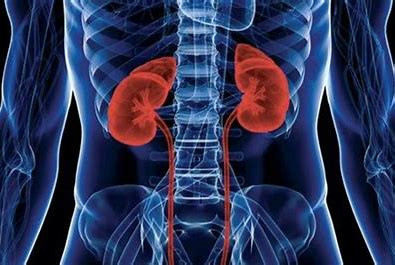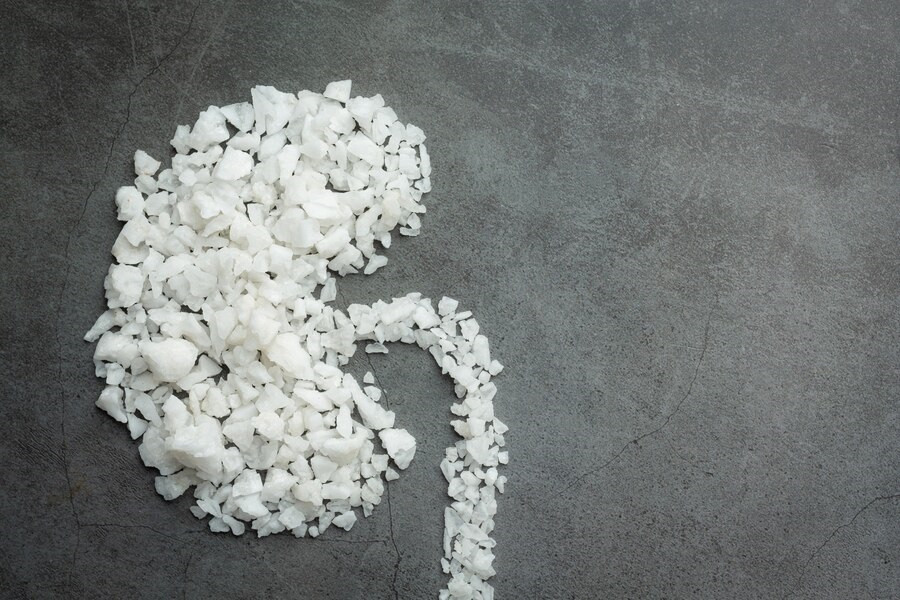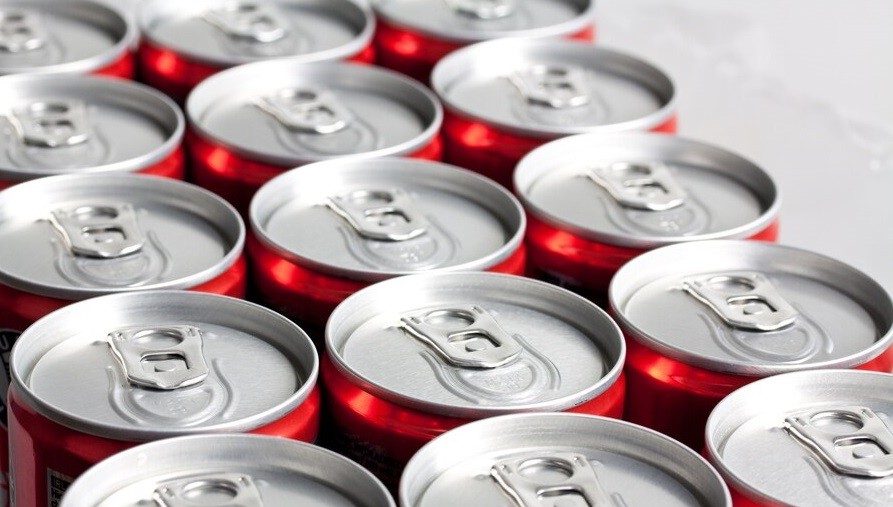Kreatinin merupakan zat limbah yang terbentuk akibat pemecahan kreatin, molekul yang berperan penting dalam fungsi otot. Kreatinin dihasilkan secara alami oleh tubuh di dalam otot, kemudian dibawa ke ginjal untuk dikeluarkan melalui urine.
Pada kondisi normal, kadar kreatinin dalam darah dan urine tetap berada dalam rentang yang stabil. Namun, jika kadar kreatinin dalam darah mengalami peningkatan, hal ini bisa menjadi indikasi adanya gangguan pada fungsi ginjal atau kondisi medis lain yang memengaruhi ginjal.
Penyebab Kreatinin Tinggi
Normalnya, kreatinin berkisar antara 0,7-1,2 mg/dL pada pria dewasa, dan 0,6-1,1 mg/dL pada wanita dewasa. Peningkatan kadar kreatinin umumnya terdeteksi melalui tes darah atau tes urine. Kenaikan kadar kreatinin ini sering kali menunjukkan adanya gangguan pada fungsi ginjal.
Peningkatan kadar kreatinin di dalam darah dapat disebabkan oleh banyak faktor, di antaranya:
- Penyakit ginjal kronis yang menyebabkan penurunan fungsi ginjal secara bertahap
- Dehidrasi
- Konsumsi protein berlebihan
- Konsumsi obat tertentu
- Olahraga yang berlebihan
Baca Juga: Minuman yang Berpotensi Merusak Ginjal
Dampak Kreatinin Tinggi bagi Tubuh
Peningkatan kadar kreatinin dalam darah dapat berdampak serius, terutama jika berkaitan dengan gangguan fungsi ginjal. Berikut adalah beberapa dampak yang mungkin terjadi:
Penurunan fungsi ginjal
Jika kadar kreatinin terus meningkat tanpa penanganan yang tepat, fungsi ginjal akan semakin menurun. Ginjal akan kesulitan dalam menyaring limbah dan cairan, yang dapat menyebabkan akumulasi zat-zat berbahaya dalam tubuh. Jika kondisi ini dibiarkan, lama kelamaan ginjal dapat kehilangan kemampuannya untuk menjalankan fungsinya dengan efektif, yang berujung pada gagal ginjal.
Pada kondisi gagal ginjal, ginjal tidak lagi mampu menyaring darah dengan baik. Akibatnya, limbah, racun, dan kelebihan cairan akan menumpuk di dalam tubuh, yang dapat menyebabkan berbagai komplikasi serius.
Retensi cairan
Kadar kreatinin yang tinggi dapat menjadi tanda adanya gangguan pada fungsi ginjal. Ketika ginjal tidak berfungsi dengan baik, tubuh akan kesulitan dalam mengeluarkan cairan berlebih. Hal ini dapat menyebabkan pembengkakan (edema) pada berbagai bagian tubuh, seperti tangan, kaki, atau wajah.
Ketidakseimbangan elektrolit
Terganggunya fungsi ginjal dapat menyebabkan penumpukan zat beracun dalam tubuh, karena ginjal tidak lagi mampu menyaring limbah dengan efektif. Penumpukan ini dapat mengganggu keseimbangan elektrolit, seperti kalium, natrium, dan kalsium, yang sangat penting untuk fungsi normal tubuh.
Ketidakseimbangan elektrolit ini bisa menimbulkan berbagai masalah serius, seperti masalah jantung, otot, dan gangguan saraf.
Baca Juga: Benarkah Gemar Makan Ayam Goreng Krispi Menyebabkan Gagal Ginjal?
Gangguan organ lain
Jika peningkatan kadar kreatinin disebabkan oleh kondisi medis tertentu seperti hipertensi, maka kemungkinan terjadinya kerusakan organ lain selain ginjal bisa terjadi. Hipertensi yang tidak terkontrol akan menyebabkan kerusakan jantung dan meningkatkan risiko penyakit jantung.
Kreatinin tinggi perlu ditangani sesuai dengan penyebabnya. Mereka yang memiliki kreatinin tinggi karena dehidrasi atau konsumsi protein berlebihan, perlu menjaga asupan cairan dan mengontrol konsumsi protein sehingga kadar kreatinin bisa diturunkan.
Sedangkan kreatinin tinggi yang terkait dengan masalah ginjal, perlu mendapatkan perawatan termasuk obat-obatan, dialisis, dan mungkin transplantasi ginjal. Konsultasikan dengan dokter untuk mendapatkan perawatan yang tepat berdasarkan kondisi Anda saat ini.
Anda juga bisa memanfaatkan layanan konsultasi kesehatan pada aplikasi Ai Care dengan mengunduhnya melalui App Store atau Play Store.
Mau tahu informasi seputar penyakit lainya? Cek di sini, yah!
- dr Nadia Opmalina
Mount Sinai. Creatinine blood test. Available from: https://www.mountsinai.org/health-library/tests/creatinine-blood-test
Zia Sherrell, MPH (2024). What to know about high creatinine levels. Available from: https://www.medicalnewstoday.com/articles/when-to-worry-about-creatinine-levels
UCLA Health (2024). Elevated creatinine levels can impact kidney function. Available from: https://www.uclahealth.org/news/article/elevated-creatinine-levels-can-impact-kidney-function
National Kidney Foundation (2023). Creatinine. Available from: https://www.kidney.org/kidney-topics/creatinine
Cleveland Clinic (2023). Creatinine Clearance Test. Available from: https://my.clevelandclinic.org/health/diagnostics/16380-creatinine-clearance-test
Cleveland Clinic (2022). Kidney Failure. Available from: https://my.clevelandclinic.org/health/diseases/17689-kidney-failure












